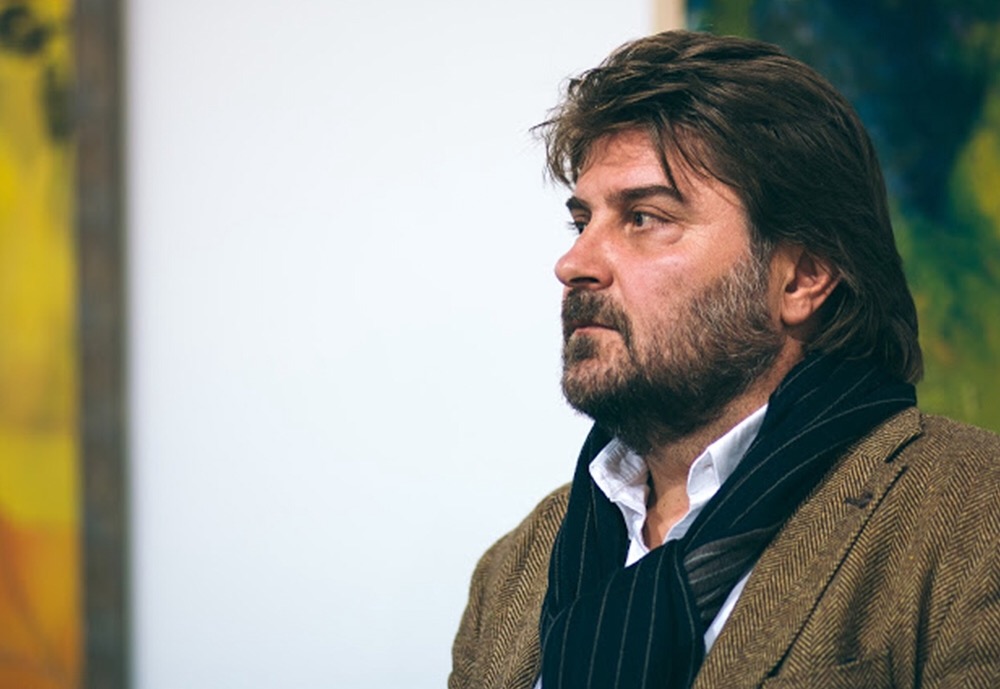
© 2017 Deyan Valkov.
All rights reserved.
Deyan Valkov - Dido
1971 Geboren in Silistra, Bulgarien
1990 Art High School in Sofia, Bulgarien
2001 National Akademie für Kunst in Sofia, Bulgarien
Magister der National Akademie für Kunst
Fachgebiet Wandmalerei (Freske)
Wohnt und arbeitet in Sofia, Bulgarien
Auszeichnungen
2012 Wettbewerb für Residence in La Cité internationale des Arts Foundation
1998 Wettbewerb OON, Day and Night
The paintings of Dejan Valkov have a very strong initial impact with their materiality. The use of different materials such as pigments, soot and sand could be interpreted on one hand as an expressive artistic gesture used for building, construction, modeling, adding or removing the artistic matter. But beyond this formal, although conceptually conditioned, approach, his works contain very profound, contemplative moments full of autobiographic inspirations. In these compositions we can easily see a horizon, space, a natural formation, a silhouette, eve a situation. But in the way they are interpreted, there is a special effect, achieved through the rhythm between the separate color zones. Because of the overlaying, the texture of the canvas creates different concept for the presence of the colors and for their combination. The effect is a mosaic overlapping of separate color zones, monochromic or expressively colorful, each having its specific logical place in the whole.
In these, let’s call them “interpretations” of the classic genres such as the landscape or the figural composition, there is no opposition or confrontation between the artistic approach and the plot. There is no an extreme excess in them – the traditional narrative is preserved and that is not so much in the story as in the forms, in the poetics and the desire to send a message. In its essence, this is a typical community for the Bulgarian painting, which has its roots back in the 80s, but throughout the years it has managed to find new reasons for a topical communication in which the paintings of Dejan Valkov have their artistic presence.